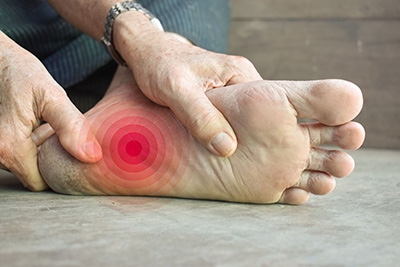Understanding Neuropathy: A Comprehensive Guide for Patients and Physical Therapists
Neuropathy, a condition characterized by nerve damage, affects millions of people worldwide, causing a range of symptoms from pain and numbness to muscle weakness. For individuals dealing with this condition, understanding neuropathy and the role of physical therapy in managing its symptoms is crucial. This blog aims to shed light on neuropathy and how our physical therapy clinic can help you manage this condition effectively.

What is Neuropathy?
Neuropathy, or peripheral neuropathy, refers to damage or dysfunction of one or more peripheral nerves. These nerves connect the brain and spinal cord to the rest of the body, facilitating communication between the central nervous system and muscles, skin, and internal organs. When these nerves are damaged, it can disrupt normal bodily functions and cause a variety of symptoms.
Common Causes of Neuropathy
Neuropathy can result from numerous factors, including:
- Diabetes: High blood sugar levels can damage nerves over time, making diabetic neuropathy one of the most common forms of this condition.
- Infections: Certain infections, like Lyme disease, shingles, and HIV, can cause nerve damage.
- Autoimmune Diseases: Conditions like rheumatoid arthritis and lupus can attack peripheral nerves.
- Trauma: Physical injuries from accidents or surgeries can lead to neuropathy.
- Toxins: Exposure to toxins such as heavy metals or chemotherapy drugs can damage nerves.
- Genetic Disorders: Inherited conditions like Charcot-Marie-Tooth disease affect the peripheral nerves.
Symptoms of Neuropathy
The symptoms of neuropathy can vary widely depending on the type and severity of nerve damage. Common symptoms include:
- Numbness or tingling: Often starting in the hands and feet and spreading to other areas.
- Sharp, burning pain: Pain that may be constant or intermittent.
- Muscle weakness: Difficulty in performing routine tasks.
- Loss of coordination: Problems with balance and coordination.
- Sensitivity to touch: Even light touches can cause pain.
- Autonomic symptoms: Issues with digestion, sweating, or heart rate.
How Physical Therapy Can Help
Physical therapy plays a vital role in managing neuropathy. Our clinic offers personalized treatment plans aimed at alleviating symptoms, improving mobility, and enhancing the quality of life. Here’s how physical therapy can help:
1. Pain Management
Our therapists use various techniques, such as transcutaneous electrical nerve stimulation (TENS) and manual therapy, to reduce pain and discomfort.
2. Strengthening Exercises
We design exercise programs tailored to your needs, focusing on strengthening the muscles affected by neuropathy. This can help prevent muscle atrophy and improve overall strength.
3. Balance and Coordination Training
Neuropathy often affects balance and coordination. Our therapists work on specific exercises to enhance stability and prevent falls.
4. Flexibility and Range of Motion
Stretching exercises can help maintain and improve flexibility and range of motion in joints, reducing stiffness and discomfort.
5. Education and Lifestyle Modifications
We educate our patients about neuropathy and provide guidance on lifestyle changes that can help manage symptoms, such as proper footwear, diet adjustments, and ergonomic modifications.
6. Functional Training
Our goal is to help you perform daily activities with greater ease and less pain. We focus on improving functional abilities through targeted exercises and training.
Conclusion
Living with neuropathy can be challenging, but with the right approach, it is possible to manage symptoms effectively and improve your quality of life. At our physical therapy clinic, we are committed to providing compassionate and comprehensive care tailored to your individual needs. If you or a loved one is dealing with neuropathy, don’t hesitate to contact us to schedule a consultation. Together, we can create a plan to help you move better and feel better.
Remember, you don’t have to navigate this journey alone. Our team is here to support you every step of the way.
Feel free to reach out to us for more information or to book an appointment. We look forward to helping you achieve your health and wellness goals!
Advanced Medical of Florida provides you with the medical care you need. For more information, go to our web site http://www.amfhealthcare.com or call (727) 408-5222.
